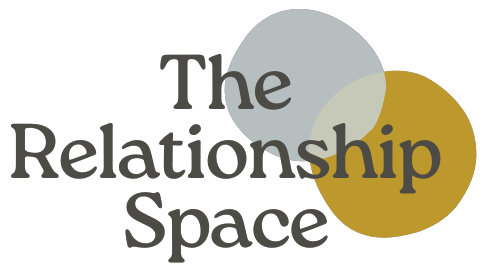Relationship myths we wish would go away
Hello friends,
Other than The Great British Baking Show I don’t tend to watch much reality TV. However, I did recently get sucked into one of those reality dating shows. It was ridiculous, captivating, and reminded me of The Onion article, ‘Woman Takes Short Half-Hour Break from Being a Feminist to Enjoy TV Show’.
You don’t have to be a relationship coach to recognize that what we see on TV isn’t particularly healthy relational behavior. There are many insidious unhelpful relationship tropes that have become norms in American culture. I was curious what myths my colleagues who work with couples, sex, and relationships would love to see debunked. Here’s what they said.
“There's a myth that becoming sexually aroused should spontaneously happen, like in the movies. While this is true for some this is definitely not true for all. Some people become aroused only in response to an advance or something that helps them feel relaxed and in the mood.”
Rose Schweig, LMFT
Specializing in therapy for thriving relationships
Berkeley, CA
“There’s a myth that talking about emotions and sex during sex is a turn off or weird. Actually, being more communicative can make for the very best sex.”
“Navigating conflict can be uncomfortable. People think that something is wrong with the relationship, or they try to avoid conflict. That discomfort is what leads to growth and clarity.”
Katie Woodward, LCSW,
Couples Therapist
Portland, OR
“The idea that your partner should “complete” you is misleading. Healthy relationships are formed by two whole individuals who complement each other, not by two halves making a whole. Personal growth and self-fulfillment are important, even within a relationship.”
Jené Arbuckle
Relationship Coach at JMA Connection Coaching
Carmel, Indiana
https://www.jmaconnectioncoaching.com/
“One of the biggest misconceptions I find with many women is the assumption that sex and intimate physical pleasure ends with menopause. After that, it’s just downhill. The body definitely changes. As our hormones change so do our orgasms, our sensitivity, and the pacing of our turn on. But when she prioritizes what feels good to her body, instead of what she thinks she should be feeling, there’s no limit to a woman’s pleasure, no matter her age.”
Mary C Campbell, Intimacy Coach
Great Barrington, MA
Instagram @diviningbeauty.marycampbell
“That we should be able to read our partner's minds. This idea needs to be debunked as it does not allow our clients to have differentiation of self or have changing views or feelings. It leaves less room for creativity and diversity of thought as well as communication. Partner's stop talking about what they want and just continue to assume. The first rule I enjoy teaching others is that most of us are not psychic and need to ask our partners what they want, how they feel, what feels good, what doesn't feel good etc. Asking questions builds trust, love and intimacy.”
Aimee Evnin-Bingham, MA,LMFT
San Francisco, CA
Sex and Relationship Therapist, Coach & Educator
Instagram: @therapywithaimeelmft
“When I think of relationships myths, I think of the 1970’s “Love Story” with the line “love means never having to say I’m sorry”"
Denise Malayeri
Relationship Coach
Bloomington, Indiana
“A myth that I hear often is that people’s differences are a problem. Whether it’s that they like different activities, have different attachment styles, sex drives, spending habits, etc. Differences are inevitable and create a more diverse way of seeing the world and navigating life’s challenges. How a couple manages those differences are what either help or hurt the bond.”
Me
I loved these responses from my peers and mentors. At first, I was surprised how many people responded with a myth about sex. Then I realized, of course couple therapists are inundated with confusion and myths about sex. Much of the world has terrible sex education and sex is taboo to talk about. I want to give a big thank you to these wise relationship experts for doing their part to educate, normalize, increase pleasure and connection!
With loving support,
Mallory
Recommendation
Dr. Fisher, a Biological Anthropologist and pioneer researcher in the field of brain science and love passed away earlier this month. She was a Senior Research Fellow at The Kinsey Institute and Chief Science Advisor to Match.com. Her contributions to science and to those looking for love, in love, and experiencing heartbreak is monumental. Listen to a 5ish minute interview with her on Ted Radio Hour about how love affects the brain.
